Guest blogging, defined, is the act of writing content for a news site, publisher or another company’s website.
There are a number of reasons why you’d do this:
- It’s a great way to drive traffic to your website
- It’s a chance for you to gain excellent exposure for your brand
- It’s a way to build relationships with people in your industry
- It’s a long trusted method of giving your site’s Domain Rating/Domain Authority a helping hand in the form of backlinks
We here at Adzooma have been putting guest blogging into practice for a while now and we’ve seen some great results:
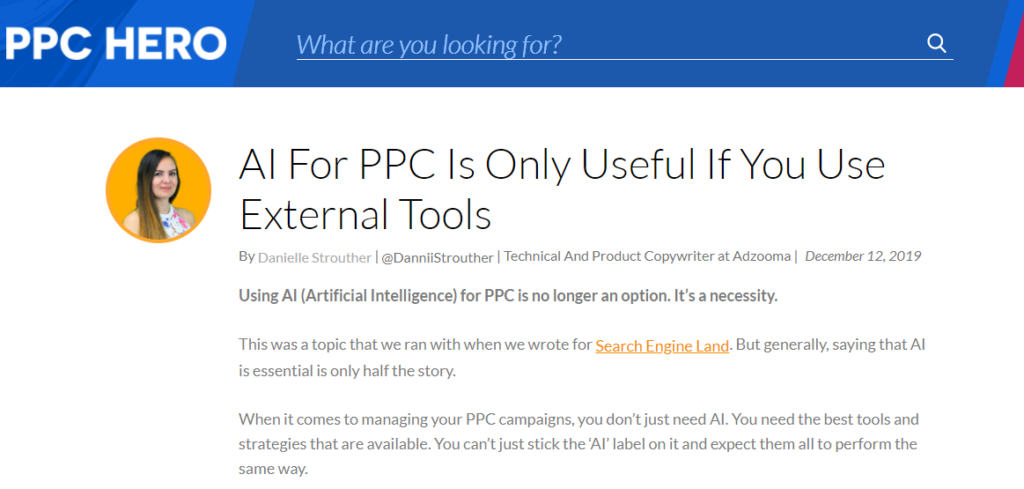
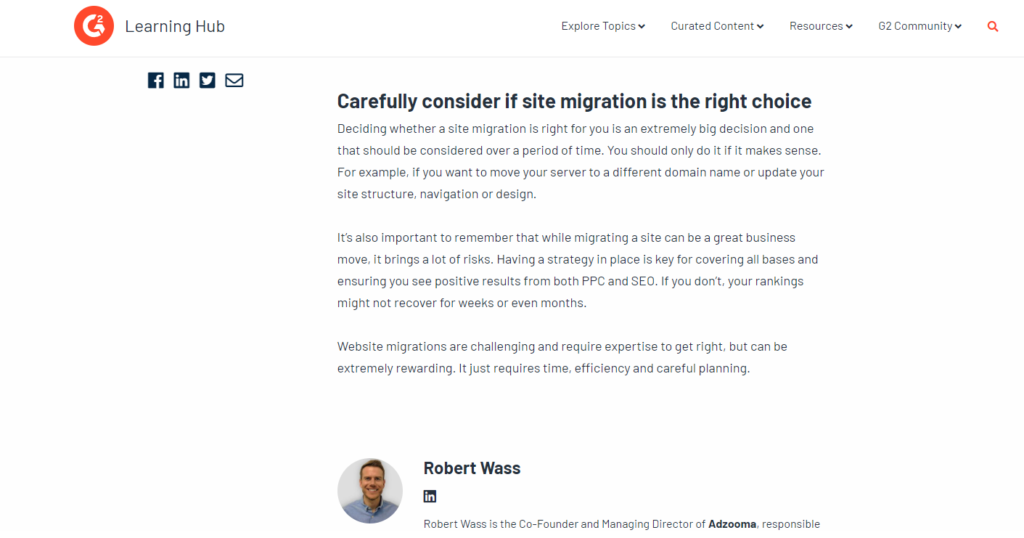
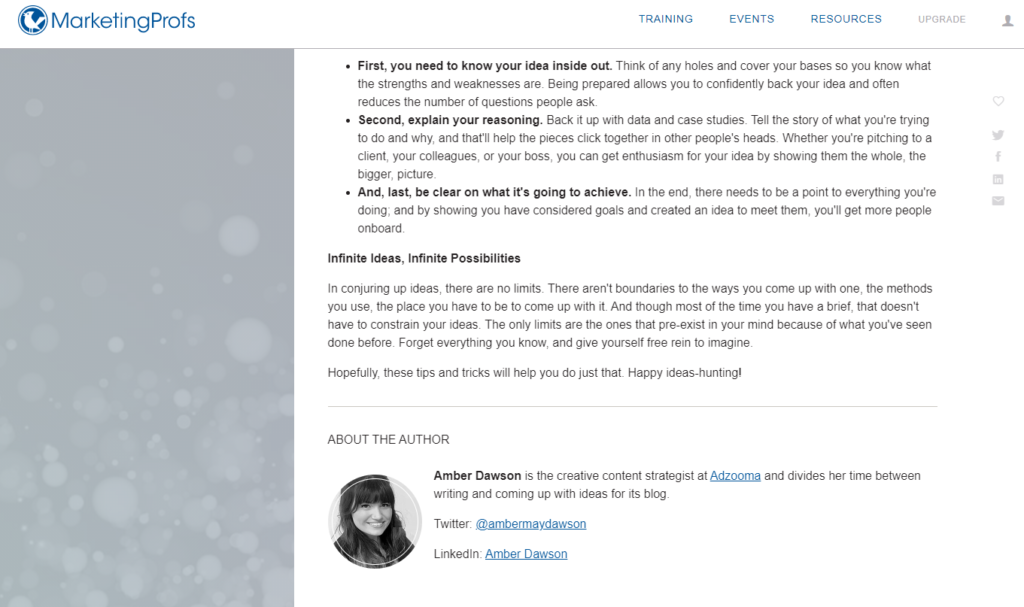
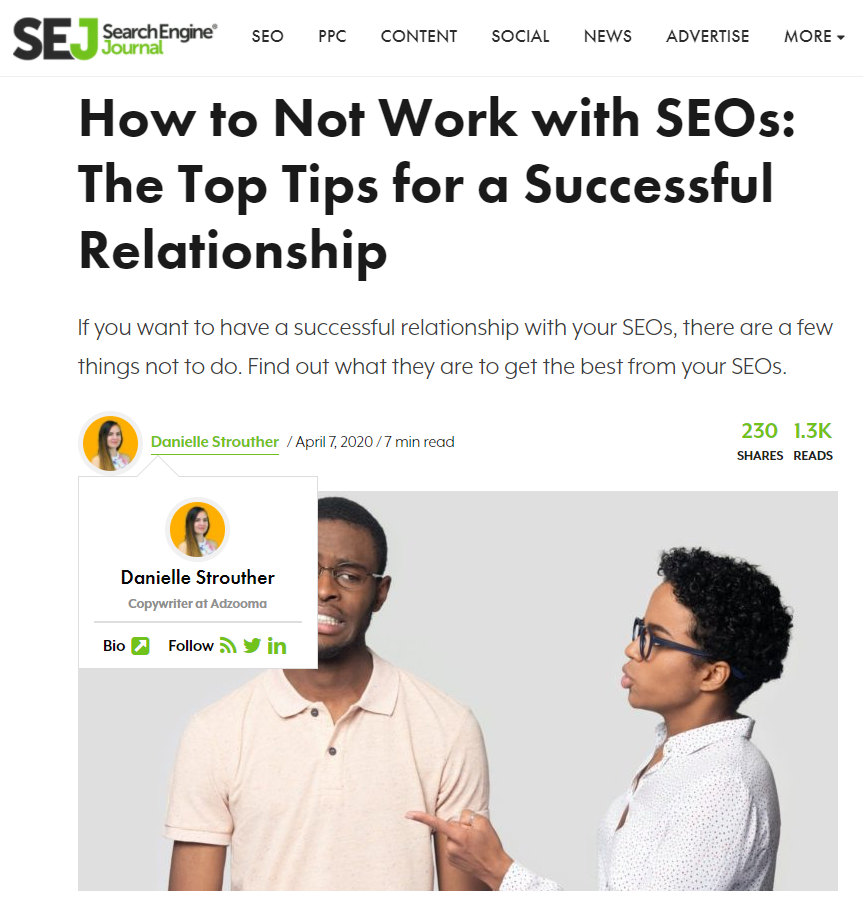
However, these results aren’t all that easy to come by. The seas of guest blogging can be a little choppy, it’s certainly not plain sailing. There are rules to abide by, best practices to follow, and a long list of things you need to know before you start.
In this article I’m going to guide you through all that along with helping you outline your guest blogging goals, what to pitch, how to pitch and where to pitch.
Now let’s get started.
Where should you start?
When you start considering guest blogging for your business you firstly need to define what you actually want from it.
We pointed out the main four reasons for doing so at the top, but I just want to expand on that a little:
1. Increasing your brand’s exposure
Writing guest posts simply puts your brand’s name in front of people. Some sites won’t allow you to sell your services in the article, nor even mention your brand in the article, however you will always be able to feature yourself in the bio and on highly viewed sites this is great exposure – hopefully it’ll culminate in an uptick in brand searches too.
2. Driving traffic to your website
This may come directly or indirectly. Not every site will allow you a link back so that’s where you’ll rely on brand searches to do the job. However most will, and with smart in-post links you may see those referral metrics in Google Analytics skyrocket.
3. Building relationships with people in your industry
It’s always important to be on good terms with those in your industry and those in your industry’s press – I scratch your back, you scratch my back is important in business. Guest posting gives you an excuse to make contact with people and from there who knows what it’ll lead to.
4. Boosting your website authority
Now in 2021, this is a little more difficult than it used to be. Google have recently said that all guest posts should be no follow links, therefore the “link equity” you gain from no follow backlinks is lessened and won’t have as much of an impact on your website’s authority in the eyes of Google – ignoring this can result in manual penalties. However, contrary to what some people say, no follow links are a signal and will still have some impact, so don’t discount them entirely.
You don’t have to just kill one bird with one stone, though. You can go for all four. This may dilute your offering so have a think about it, but once you’ve decided what your goals are (note: it may be hard to put a number by these goals to begin with), it’s important to dig a little deeper if you really want to see the fruits of your labour down the line.
For example, if you want to increase your brand’s exposure, you need to ask yourself questions like:
- “In what way do I want to increase my brand’s exposure?”
- “How do I want to be perceived when people see my brand associated with this content?”
If you don’t define and scope this out properly, your brand may be seen and forgotten, or seen and associated with something entirely different from what you want to be associated with.
The same with driving traffic. Ask questions like:
- “Do you just want people to land onto your website?
- “Do you want people to land on to your website and then buy your product?”
There is no right or wrong answer here, conversions are great but not the be all and end all.
Everything is dependent on what you want to gain.
So start by asking yourself as many questions as you can, like some of the examples provided above. From there you can really drill down into what you want to achieve and why.
This is such a vital step and needs to be in your mind throughout the whole process, because it will make everything else so much easier.
What should I post?
Relevant content, of course. If you’re running a surveying company, you don’t want to write about the intricate details of Tom Brady’s career just because it’s the only way you can get a backlink on a high domain site. This won’t move any of your needles.
It also doesn’t make you look like an expert. Instead, if you’re a design agency and you’re writing an article about UX laws and you’re wowing the reader, that reader is going to go, “Wow, this person really knows what they’re talking about, who are they?!” Then you’ve automatically made yourself look like a thought leader in someone’s eyes.
But more than relevancy and your expertise you need to think a bit wider too, like for example evergreen content. Evergreen content is essentially timeless content, the Pink Floyd or Miles Davis of content, content that won’t go out of date.
Because essentially, if you’ve got a chance of guest posting, you want your article to always be out there so you’re still getting readers, clicks and potentially conversions five years down the line.
This isn’t easy, especially in some industries where things change all the time, plus it’s not a hard and fast rule either. Some sites will only accept newsworthy content, which is fine and newsworthy content has the potential to create great noise on social and via Google News too. But it’s important to get the balance right.
It’s also really important to soft sell your expertise too. Some sites you can overtly sell yourself within the copy, but you’ve got to be smooth with it. If all of a sudden you post a pretty much CTA in the copy, people are going to be wise to what you’re doing and be put off.
Instead, be subtle and make it part of your article. Here’s an example we did for PPC Hero for an article on the Best APIs for SEO & PPC Managers:
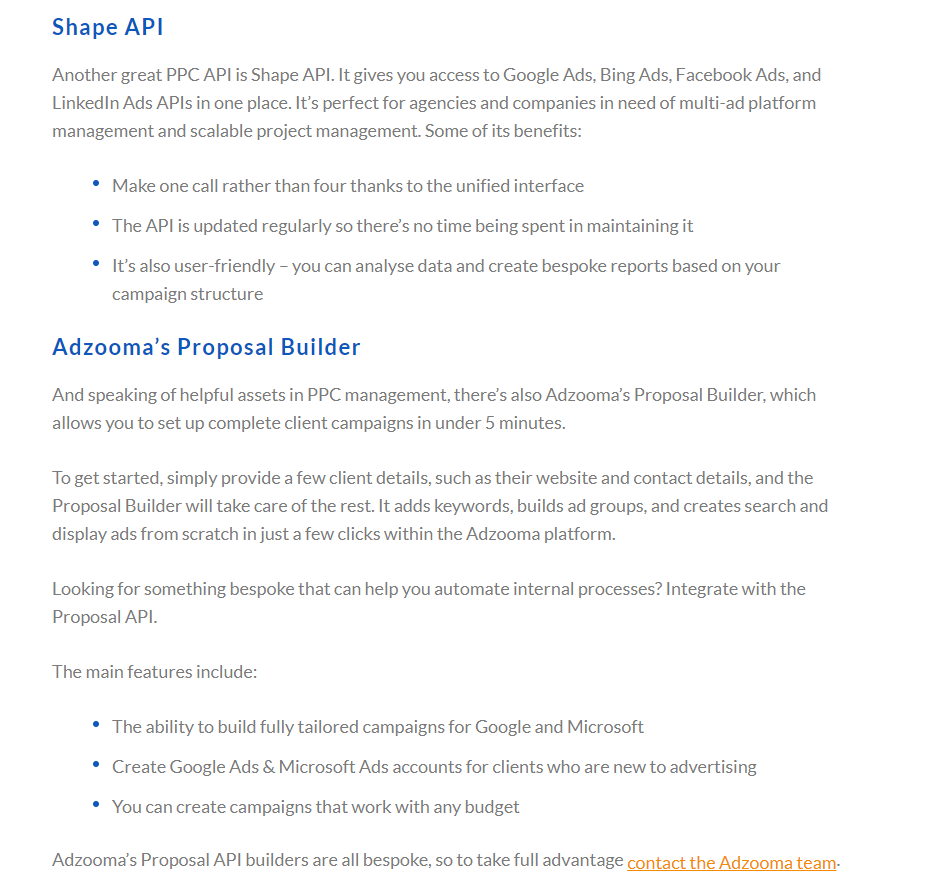
We listed all the best solutions, then featured ourselves in the list. This is a great way to make yourself look great while not drawing attention to the fact you’re selling to them in the process.
However, some sites you’ll have to be even more subtle. So when we wrote an article on How to Get National PR Coverage When Starting From Zero for Jeff Bullas it was crucial for us to give context around who Adzooma are so the reader could relate our method to our PR goals. And there was the crucial place to soft sell and bring attention to the Adzooma product:
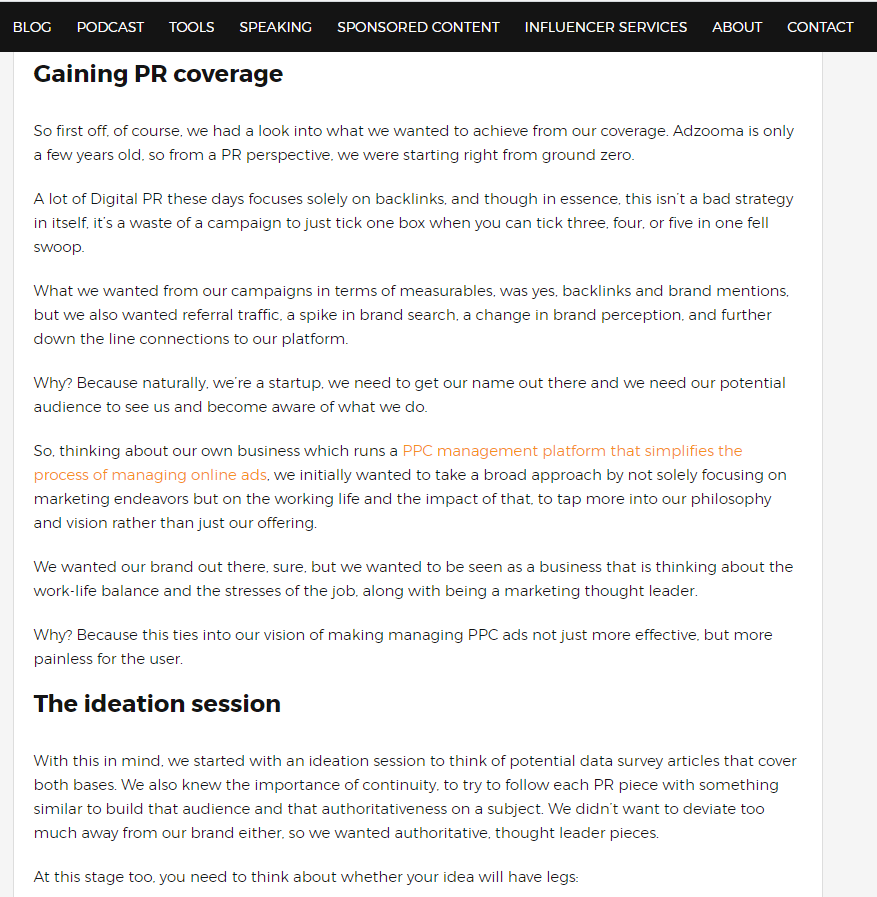
It’s also important to create content that will resonate with the site’s audience too, but I’m slightly stepping on the toes of the next section so I’ll move on to that now.
How to pitch
This will differ enormously from site to site. Some sites have really strict guidelines when it comes to pitching like Wired for example. While others want you to give them the blog straight off the bat like PPC Hubbub.
Of course, always follow the pitching guidelines where possible, but if there are no pitching guidelines, here are a few tips:
- Thoroughly scout the website you’re pitching to. To create a successful pitch you need to make sure what you’re pitching fits in what they currently publish
- Make your pitch personal. I know sending out mass emails saves time, but people see straight through it in 2021
- Provide more than one topic and include a two, three sentence explainer of what it will consist of and why it will be a great fit for their site
- Be informal, but not over friendly. We’ve received some awful, sickly pitches down the years and there’s nothing more off putting
- Give a little bit of background of who you are and why you’re an expert on the topic that you’re pitching – a link to recently published work or LinkedIn page works here
- Tell them you will follow SEO best practice and include a target keyword. Every site loves it if you can offer them a potential to see growth in the SERPs
All these tips aren’t just a good way of getting published. They will also make your content perform better once it’s live too, especially the scouting of the previous articles. This gives you an idea of what tone to use and what you can include in your content like images, screenshots, stats, infographics, case studies, etc.
You won’t get replies to every pitch you send out, so reach out to people who know you or have mentioned you online to begin with.
Also, this is a long term tactic, but it will pay off. Try to personally interact with journalists, thought leaders and colleagues within your industry through social media. It sounds almost too simple in practice, but what you’re doing is moving from unknown emailer to, “Hey, that person I converse with semi-often on social media emailed me. I like the way they think, I’ll give this a read.”
Because no matter how great your idea, until they know who you are, you’re outside the circle of trust. But by treating these people like actual real human beings and interacting with them online, you’re striking up a genuine personal relationship that could help in a professional capacity too.
It’s important to always have your emotional intelligence dialed up so as not to come across creepy or weird, obviously, and I’m not saying you should start faking being someone’s friend. But just treat them like a real human being, offer them your personality and your insight, then see what happens when you start offering them your work later down the line.
Where should I post and where can I post?
This of course depends on your starting plan, but whatever you’ve decided upon, that word relevancy again is the key for this section.
So when you’re searching for places to post, make sure it relates in some way to your business. It doesn’t have to be a like for like site, say you run a plumbing business you could look to websites who write about small businesses, or maybe go a little bit more out there and go to a site who write about environmental sustainability.
As long as there is something there that fits naturally in with your business and your goals, then that’s the place for you.
But don’t forget to look at traffic and Domain Rating (DR) / Domain Authority (DA) too. If you’re wanting clicks to your site and to build your brand, posting on a site that doesn’t receive any traffic isn’t going to move any needles, and if you’re looking to improve your website’s authority by getting a link on a low DR / DA site, neither will that.
Moz’s SEO toolbar is a free easy way to keep an eye on site DA – you can just add it as an extension to your Chrome browser and everytime you land on a website it will tell you the site’s DA. While adding the free Keyword Surfer to Chrome will give you the estimated monthly traffic for every URL that appears in the SERPs. They’re two great tools that don’t add any time to your research process.
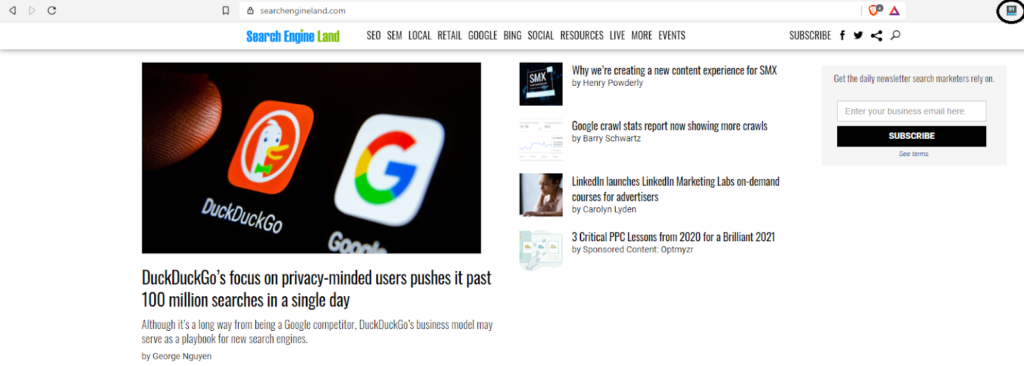
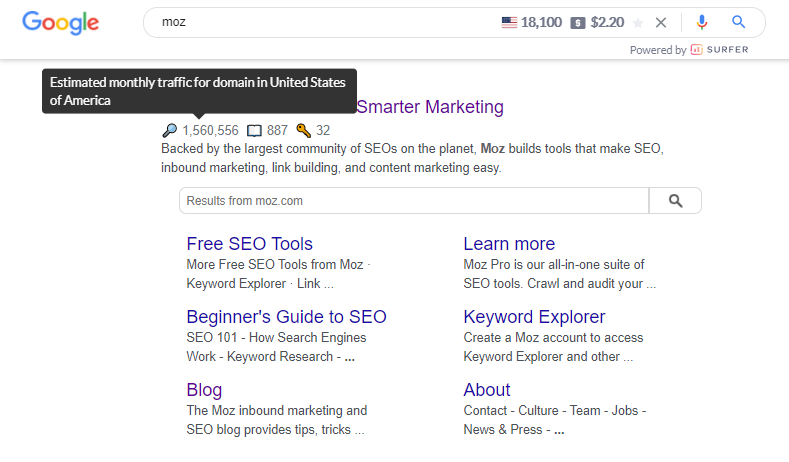
There are no benchmarks you should look out for, it’s best to just judge for yourself by comparing your site’s DR / DA and monthly traffic to a potential guest posting spot. However I’d avoid going for sites with spam scores over 30 (Moz’s toolbar comes equipped with a Spam Score indicator too). These sites can hurt the health of your site so should be avoided.
So where do you find sites that will house your blogs? Here’s a few places you should look and few techniques to finding more:
Adzooma
Of course I had to put this first. I’ll keep it short, but we here at Adzooma are currently open to guest posts across a whole array of marketing disciplines. As long as your piece has some kind of marketing element to it, we’re all ears.
You can find more information here or get in touch today.
Websites to guest post
There are some great resources out there if you’re looking to find loads of sites to contact in one place.
This piece from Solvid features over 300 websites that accept guest posts, including specific categories for business, digital marketing, lifestyle and technology, while they’ve also inserted a column for DA, Alexa (site popularity), and “difficulty” to get published.
Advanced Web Ranking have also created a similar resource, featuring over 150 sites, including specific categories for digital marketing, travel & tourism, finance, sports & fitness, health, home & garden, family & community, business, and much more. They’ve also included the DA beside each one too.
And there is a website called AllTop.com too which is intensely comprehensive, though it is a little bit of a mad site and not quite as structured and neat as the other two, but if you’re willing to dig it’s a great resource.
I must say, some on these sites are outdated (which isn’t surprising given how many sites they’ve collated), but there are certainly more hits than misses, and they definitely give you a head start in your search for publication.
Utilise the search engines
Google is a big friend here, as is Twitter. You’ll find loads of potential opportunities by just using the following search strings on both sites. Let’s say you’re in the finance industry, for ease:
- Finance “guest post”
- Finance “write for us”
- Finance “guest article”
- Finance “contributing writer”
- Finance “submit blog post”
- Finance “articles wanted”
- Finance “contribute to our site”
- Finance “contributors”
- Finance “guest column”
- Finance “submit content”
- Finance “articles wanted”
Then have a think about prolific guest bloggers in your space. You may not know any off the top of your head, so this may require a little bit of searching to find someone
My recommendation would be to have a click around on some authors on your industry’s most well known blogs and then give them a Google search.
I’m going to show you the example of what I found off the bat with Kirk Williams here, he’s a big player in the paid search industry:
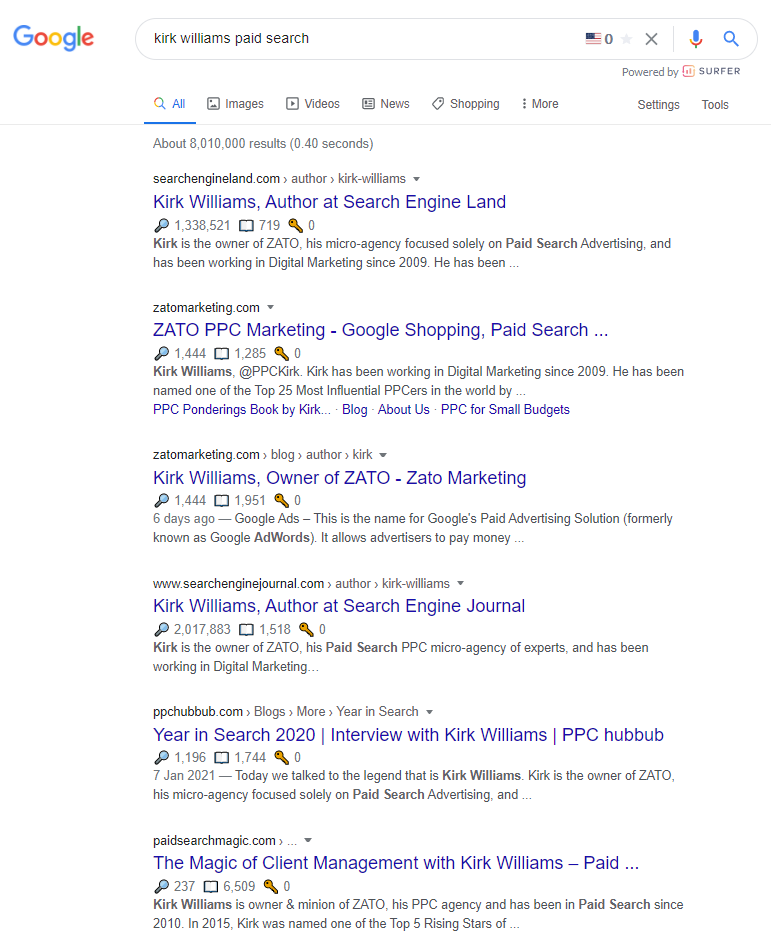
These are just the first results that came up, and 4 of the 6 results are guest posts. There are loads more further down and on the following pages.
Analyse your competitors
So, this one you will have to find a paid solution for. Two great ones are SEMRush and SEO PowerSuite.
Once you’ve signed up, though, it’s really easy. Say you’re using SEMrush, you just have to head to the backlinks analytics tab, type in the domain and you’ll get a list like so:
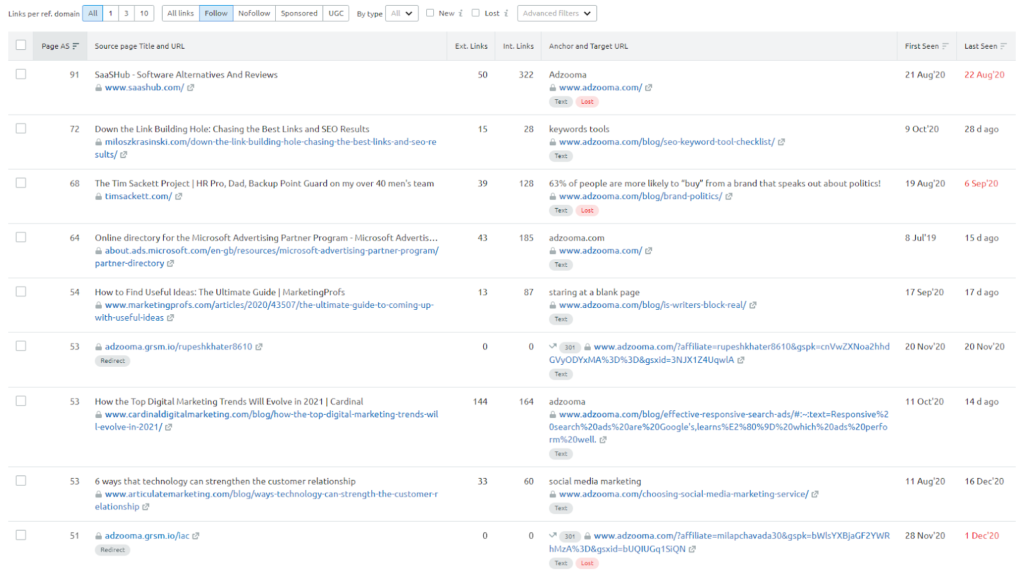
I’ve filtered these by Follow links, initially. Then the process is just clicking each link to try and find the guest posts. Once you’ve found them, head to the contact page and send your pitch over.
Another tool you can use is Adzooma’s SEO Performance Report which will allow you to get ahead of your competitors by finding keywords they’re missing. You can also compare your client’s performance with a competitor, showing how they compare with the competition.
The report is available to all Adzooma users, try the basic version for free to get a taste of what this report can offer. Not an Adzooma user? Sign up for free, here.
How to know if you’re successful
Like I said earlier in the article, it’s hard to put a specific number beside goals you want to achieve when you’re starting out but this will become easier once you have a benchmark to compare yourself to.
But knowing whether you’re successful or not comes down to two things really: being published and an uptick in analytics.
Yes, being published is a success. It’s not always easy to do, especially when you’re starting out and you’re unknown. Don’t let me put you off by saying that, but I don’t want you to think this is an easy process because it’s not.
However, it does get easier. Just like in every aspect of the world, once you’ve got that initial foot in the door, other doors will open.
Then from there, it’s important to keep an eye on analytics. Have a look at those referral stats in Google Analytics and brand searches in Google Search Console, see if your guest posts are making an impact or not.
If they’re not, maybe the site you posted on isn’t great or maybe you didn’t soft sell yourself well in the article.
Whatever it may be, don’t give up. Finesse the formula and get straight back to it.
Or just get a digital PR agency to do it for you.




